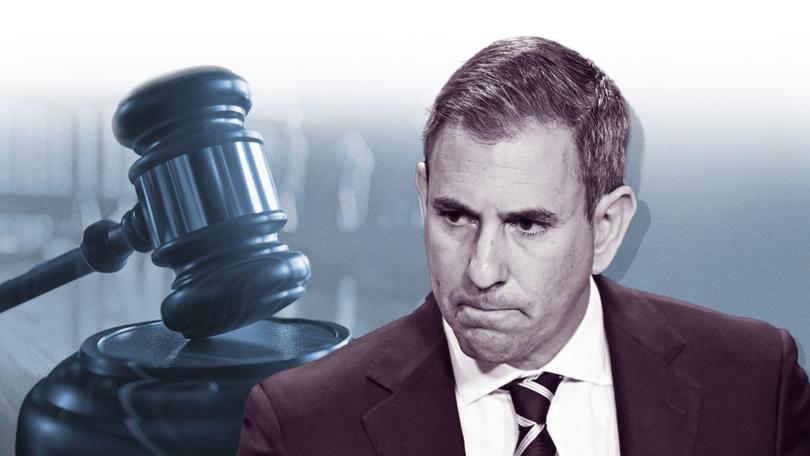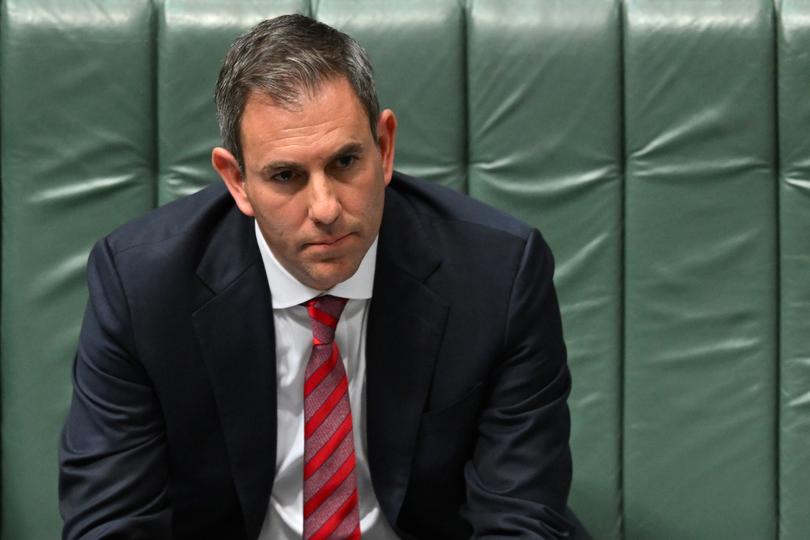SIMON BIRMINGHAM: Who’s killing the economy? The evidence points overwhelmingly to one culprit

It’s the case of Chalmers v Reserve Bank of Australia, and it’s playing out in the Court of Public Opinion.
Surprisingly, this case was brought by Anthony Albanese’s Treasurer, Jim Chalmers, who broke with decades of orthodoxy from his predecessors to blame the Reserve Bank for the financial pressures being faced by Australian households.
Chalmers’ claim centres on his assertion that the decisions of the RBA are “smashing” the Australian economy while attempting to absolve himself and his Albanese Government colleagues of any responsibility for the hardship facing Australians and households.
Sign up to The Nightly's newsletters.
Get the first look at the digital newspaper, curated daily stories and breaking headlines delivered to your inbox.
By continuing you agree to our Terms and Privacy Policy.Embarrassingly for Chalmers and Albanese, their triggering of this fight is backfiring spectacularly on them.
The evidence mounts almost daily and demonstrates overwhelmingly that it is their policies and negligence that are truly to blame, and hard-working Aussies and struggling families are their victims.
In opening this case, the first consideration is the scale of the problem. It is dire and getting worse.
Since Albanese became Prime Minister in May 2022 — and has since delivered three Labor budgets — a mountain of evidence shows Australia’s economy has entered an entrenched household recession, with household incomes going backwards at a world-beating rate.
In any trial, proceedings often begin with an agreed statement of facts. While Labor might not want to discuss — let alone agree with the facts — they are unassailable.
National accounts figures have revealed the slowest economic growth, or gross domestic product, since the 1990s, outside of forced COVID shutdowns.
Why has this happened?
Because Labor has spent its first term in Government fighting everything but inflation.
Labor’s policies have instead delivered six consecutive quarters of negative GDP per person growth and the longest per capita recession in 50 years.
That has put Australian households in recession for almost all of the Albanese Government’s time in office.
What precisely have Labor’s budgets delivered for Australians?
Living standards, measured by real disposable income per capita, are down by 8.7 per cent. That is, every Australian is increasingly worse off on average.
Productivity has collapsed 6.3 per cent, so businesses are generating less output from their efforts.
Household savings are down 10.2 per cent, as more and more people have to dip into their rainy day funds just to make ends meet.
Personal income taxes collected are 25.3 per cent higher, taking more and more out of the pockets of struggling Australians when they can least afford it.

In May 2022 when it came to Government, Albanese’s Labor Party inherited an economy in good shape relative to comparable countries.
Unemployment was low, the economy was growing strongly and government finances were on the road to repair after the enormous spending required to keep the country afloat during the crisis of the pandemic. Inflation was lower than similar nations.
Now, just 28 months later, the state of our economy and, as a result, the state of individuals’ and households’ finances are perilous.
Core inflation is higher in Australia than in all comparable economies. It is higher than the US, UK, Canada, Japan, the Euro Area, Sweden, Norway, Switzerland and New Zealand.
And who should Australians hold to account for this?
When businesses needed to become more productive, the Albanese Government piled on new industrial regulations, red tape and green lawfare.
When government spending needed to show restraint to put less pressure on interest rates, the Albanese Government decided to throw around an extra $315 billion of spending.
This Government has put all the pressure for bringing inflation down on the Reserve Bank but then blamed it for doing so.
In its defence against the Chalmers claims Reserve Bank governor Michele Bullock has laid out in a banker’s typically cautious terms that “ongoing spending and recent announcements by Federal and State and Territory governments” drive concerns “about the degree of excess demand in the economy”.
For the benefit of the jury, what that means is that government spending is keeping inflation higher for longer.
The independent expert witnesses don’t mince their words in making this point.
Lifelong budget analyst Chris Richardson said, “both Federal and State budgets have thrown much more fuel onto the fire. Don’t get lost in whether rates go up or not. The key point is they’re high for longer.”
Former Reserve Bank board member Graham Kraehe said: “to draw attention when you’re probably two-thirds of the problem is a little problematic. For the Treasurer to then be coming out and saying, ‘Well, this is the Reserve Bank’s fault’. I don’t think another serious economist in the country would agree with that.”
The closing arguments from Chalmers and Albanese — in fact, their only evidence — is to keep repeating “it’s not our fault, it’s the Reserve Bank’s fault”.
A jury of peers, right across our wide brown land, cannot be so easily fooled!
Simon Birmingham is the shadow foreign affairs minister
